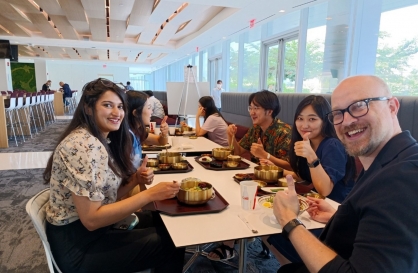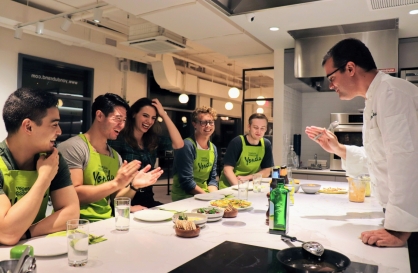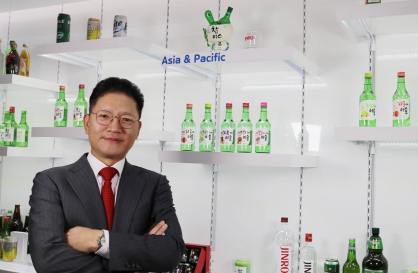Most Popular
K-Food
[K-Food] Harim at forefront of exporting Korean superfood samgyetang
Riding high on healthy eating trend, chicken seller’s samgyetang exports surge to W7.5b last year
By Lee Yoon-seoPublished : April 20, 2023 - 16:29

This article is the seventh installment in a series of interviews with global business chiefs of South Korean food companies that are expanding aggressively in overseas markets. -- Ed.
Amid the rising demand for healthy foods, South Korea has increasingly exported its traditional superfood samgyetang, or ginseng chicken soup, to overseas markets in recent years.
According to the Korea Agro-Fisheries and Food Trade Corp., exports of samgyetang have jumped by 64 percent from $11 million in 2017 to $18.1 million in 2021.
Standing in the midst of these robust samgyetang exports is Harim, one of Korea's largest chicken sellers, responsible for almost 40 percent of the nation’s total exports of samgyetang.
According to Harim, last year, the company's global sales – 90 percent of which are samgyetang product exports -- surged 15 percent in North America and 30 percent in Asia, respectively, compared to 2020.
As of 2022, its annual sales of samgyetang overseas have amounted to some 7.5 billion won ($5.6 million).
Park Juno, head of Harim's food business unit, told The Korea Herald that the company's successful inroads into global markets with samgyetang are thanks foremost to the company's ability to keep the chicken in samgyetang both fresh and tasty.
"Exporting fresh chicken that also tastes good is a difficult task for a food company, as chicken goes bad very quickly, as opposed to beef and pork," said Park.
Park added that with international regulations for livestock meat exports tightening amid increased biosecurity concerns, if food companies want to export chicken, they usually have to give up either taste or freshness.
However, Harim's 37 years of know-how in retailing processed chicken meat at home has translated seamlessly into exporting packaged samgyetang that utilizes 100 percent fresh “made in Korea” chickens which, while being fresh, also taste good.
Specifically, he said that Harim's methods primarily focus on deep-freezing the chicken meat, despite the time and money doing so takes.
"A lot of food companies sterilize chicken meat and put them into retort pouches -- which, effectively takes care of the germs and bacteria. However, because they have been pressurized and heated, the meat tends to taste mushy," he said.
Another tactic that has proven effective for Harim is its localization strategy, which has involved years of research in overseas markets.
"Western countries tend to prefer meat that is chewy such as chicken breasts, whereas Asian countries prefer meat that is soft, such as chicken legs," said Park, adding that the company has therefore developed specific types of samgyetang for each region, such as samgyetang that only uses chicken breast meat for the North American region.
"Moreover, we found that the image of a whole, bare chicken in a pot can be too much for people from some countries, and decided to come up with boneless samgyetang and partially remove the image of cooked chickens from the packaging," he added.
For its global expansion, another key market is China, where consumers are very receptive to Korean traditional foods that utilize ginseng in particular. The company is also pouring resources into Europe, a region they find accepting of new dishes.
"Compared to 10 years ago, when Harim first started aggressively exporting products to global markets, the perception of K-food has definitely changed," said Park.
“As of this year, we aim to expand our global sales to 11.1 billion won."
























![[Today’s K-pop] Treasure to publish magazine for debut anniversary](http://res.heraldm.com/phpwas/restmb_idxmake.php?idx=642&simg=/content/image/2024/07/26/20240726050551_0.jpg&u=)